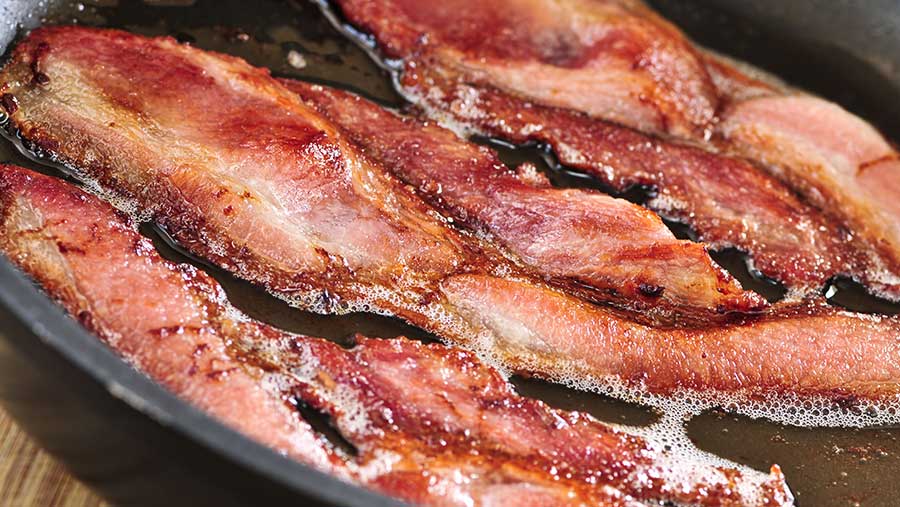Opinion: ‘Let them eat bacon,’ says David Alvis
 © Stock Connection/Shutterstock
© Stock Connection/Shutterstock Embarrassing as it may be, I am something of a fan of “I’m a Celebrity, get me out of here!”
Bizarrely, I never seem to tire of watching C-list celebs chomping their way through the inevitable smorgasbord of antipodean invertebrates and ostrich anuses in forlorn hope of resurrecting their flagging careers. It’s a vicariously entertaining way to while away a long winter evening; “Simple things…” as they say.
But if one were to look, for a moment, behind the admittedly low-brow facade of the “bushtucker trial”, there is an interesting behavioural lesson to be learned. Restrict a group of normalish people to a diet of rice and beans for more than a few days, and you will be shocked at the levels to which they are prepared to stoop in order to secure a decent meal… and by decent, I mean one containing animal protein.
See also: Don’t waste time arguing with vegan campaigners online
For very good nutritional reasons, our senses are evolutionarily attuned to the taste and smells of meat and dairy products. The claim “nothing has cured more vegetarians than the smell of bacon frying in the morning” may be a tad churlish and delightfully inflammatory to the frothing ranks of militant vegans, but like most clichés, it is founded on an undeniable truth.
Creating the impossible
 David Alvis is managing director of Yorkshire Dairy Goats, based in the East Riding. He is a Nuffield Scholar and formerly co-managed the Technology Strategy Board’s sustainable agriculture and food innovation platform.
David Alvis is managing director of Yorkshire Dairy Goats, based in the East Riding. He is a Nuffield Scholar and formerly co-managed the Technology Strategy Board’s sustainable agriculture and food innovation platform.It is this innate yearning for the taste of meat that has inspired the “Impossible burger” – a particularly unappealing confection of plant fat and protein extracts that hails from California and is currently causing a bit of a stir among the “cows are killing the planet” caucus on social media.
It is, we are told, a solution to the conundrum of how to make a meat-free diet acceptable to concerned consumers who haven’t yet learned to manage their meat cravings.
The very clever people behind it have spent years researching what it is that makes a burger taste, smell and feel like a burger. And with the help of genetically modified yeasts that impart the hitherto elusive umami meat taste, they have created something that allegedly tastes just like a burger, yet is 100% plant based and therefore can happily be consumed guilt free.
Hallelujah! Surely it’s now only a matter of time before they perfect an “impossible” rib-eye or, the Holy Grail, “impossible” bacon. Humanity will finally be saved from itself.
But here’s the rub – and it’s the inconvenient truth that lurks stubbornly behind the illusory concept of a truly sustainable vegan diet.
Yes you can, if you really want to, survive on a 100% plant-based diet. Innovations such as the “Impossible burger” might even go some way to alleviating the bland, self-flagellating drudgery of such an existence. But none of it is sustainable on any sort of scale, without a livestock industry, tucked away out of sight, to hoover up all those bits of plants discarded by that sector of society that naively argues that everyone’s dietary needs should be met without the involvement of a single animal, bird or fish.
Unfortunately for them, livestock farming is and always has been an integral and essential component of any sustainable food system. As well as being the finest available source of nutrition, farmed animals are nature’s ultimate “up-cyclers”. Our future, and theirs, will continue to be inextricably linked.
